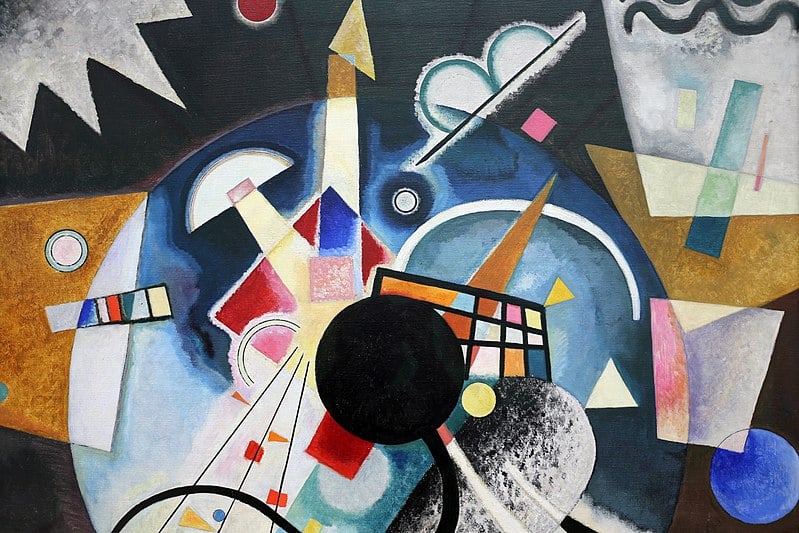If peripheral countries want to give something substantial to the world, they must do so without refueling historical forms of expansionism.
Peripheral countries are ones that have been oppressed and exploited by other countries: Anglo-Saxon countries, Western Europe, but also Russia and China. Peripheries include countries in Latin America, Africa, Asia and the former Soviet Union (such as my homeland, Poland).
People inhabiting peripheral countries often take their peripherality as a sign of bad luck. But if instead they actively embraced being peripheral, they could turn their bad luck into good.
A region of the world that decides to embrace its peripherality — to which it at first resigned itself because of unequal relations of power — has already eradicated the desire for material, coercive expansion into other territories. I cannot consistently claim that a country is peripheral while also claiming that it is destined to be the biggest empire in the world, or even in the region.
Yet, if a peripheral country decides it will not pursue forcible expansion, it is at risk of being marginalized further by those countries or political forces who are willing to continue their forcible expansions. It might continue being exploited by its neighbors or colonizers, or maintain a low status in the global supply chain.
The peripheries have — unfortunately or not — no choice but to show they can contribute to humanity. At the same time, as they understand more and more the evils that happened to them, they cannot pursue this development through coercive expansion.
We saw that those who determined world history the most did so not through kind contribution of their cultural inventions but through material domination and expansion. Hence, for peripheries to develop, they must invent ways of developing like no one else in history.
When those with a colonial mindset claim that the peripheral regions have no history, I am outraged by the ill intentions behind such a statement, but not by the statement itself. Given the profundity of the work that awaits the peripheries, their future will overshadow anything that has happened in their past — not in the sense it will be forgotten, but because it will seem like infancy, moving from history to prehistory.
The most important kind of work for the peripheries lies in the realm of cultural creation — which, first and foremost, includes developing new ways of thinking and living in the postcolonial, post-imperialist, postmodern stage of history. The center and the peripheries are prone to a sense of meaninglessness of the world — a side effect of the technological and scientific progress that has occurred. People in the peripheries are most ready to approach thoughtfully such side effects of this progress because it is easier for them to see how artificial some aspects of the progress were, given they were not developed by but forced upon the peripheries.
Part of this work should be an extraction of inspirations from the peripheries’ pasts. But what should be inspiring is not the general experience of subjection, but something much less obvious.
Take Poland, the periphery from which I come. At the end of the 18th century it was conquered by three empires. For over a century it constituted Prussia’s, Russia’s and Austro-Hungary’s periphery, and was treated accordingly. In the aftermath of the First World War, Poland gained independence as a nation-state — but not for long, as it was completely conquered by Germany and Russia and dissociated within a single month in 1939. After the Second World War it was established again, but as a state quasi-colonized by Russia. This period ended in the 1990s, when my generation was born. Such a history of victimhood might be vaguely impressive, but in truth it is a lack of history, something rather meaningless to the wider world because it lacks inspiring power for the future.
Instead, in expressing the past of the peripheral countries, we should focus on the individual cases of great inventiveness that anticipated the very work that awaits the peripheral countries. In Poland, my generation was especially influenced by progressive statesmen like Tadeusz Kościuszko (who is also important in U.S. history), and yet more so by progressive Polish philosophers such as August Cieszkowski. Such figures were in a way already seeking reasons to understand why the postcolonial future must come and in many ways acted as if it were about to come.
For instance, in the 1830s, Cieszkowski amended the bases of Hegel’s philosophy of history. Hegel established in his thought that the modern person can see for the first time in history that all of human history was the history of progress. Given such a thesis, Cieszkowski criticized Hegel for not theorizing enough about the shape of the future.
Cieszkowski thought it follows necessarily from Hegel’s philosophy that the future stage of history would be essentially what we now call the postcolonial world. It was perhaps easier for Cieszkowski to imagine such a tendency than for Hegel, since the former was part not of the center of the world, but rather of the exploited periphery.
The thesis we can extract from Cieszkowski’s thought — that the future stage of history will belong to the peripheries — can be expanded to also include all the various groups of people that were historically denied dignity in the center of the world, in the modern empires. In this sense, the whole territory of the world, and not merely a select few, can actively partake in shaping the new, postcolonial stage of history.
The Daily is committed to publishing a diversity of op-eds and letters to the editor. We’d love to hear your thoughts. Email letters to the editor to eic ‘at’ stanforddaily.com and op-ed submissions to opinions ‘at’ stanforddaily.com.
Follow The Daily on Facebook, Twitter and Instagram.
